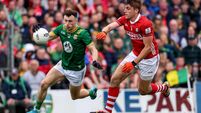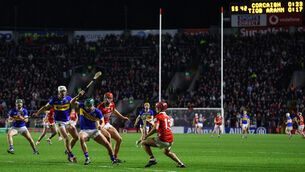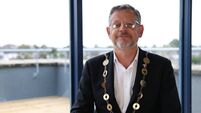KEN EARLY: Will Messi be loved like Maradona?
The opponents at Napoli’s San Paolo stadium that sunny Sunday were Bari, scrappers who were fighting to avoid relegation. Napoli’s own form was reflected in the condition of their leader and captain: Maradona was visibly overweight and out of form, with only five goals in the league that season, all of them penalties.
He was now physically capable of being Maradona only for a couple of seconds at a time; still sometimes that was enough. In the 55th minute, he wriggled past his marker on the left and curled a cross to the back post where Gianfranco Zola arrived to head the winning goal.











